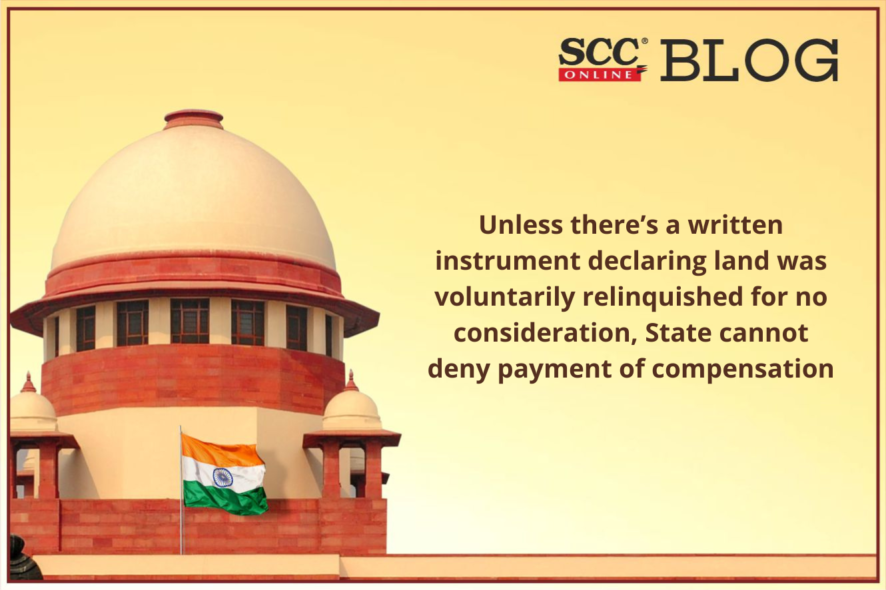Supreme Court | The Division Court of Vikram Nath* and Dinesh Masheswari, JJ. held that the State’s act of taking the appellants’ property, all being farmers, without compensation, was arbitrary, irrational, and a clear violation of Article 300A of the Constitution. Since the land in question was agricultural, the Court opined that non-payment of adequate compensation would amount to a violation of the right to livelihood; a fundamental right under Article 21.
The Court observed, citing its decision in K.T. Plantation (P) Ltd. v. State of Karnataka, 2002 SCC OnLine Kar 380, that under the mandate of Article 300A, the State can only deprive a person of the right to property if it is for a public purpose and the right to compensation is fulfilled, thereby reiterating that the right to compensation is an inbuilt part of Article 300A.
The Panchayat/Municipality wanted to widen the Sulthan Bathery Bypass Road and therefore requested the appellants to utilize their land for the construction of the road. The appellants were assured that they shall be paid proper compensation for surrendering their land.
According to the appellants, they gave their land on the assurance that they would be given compensation. After the construction of the road, the compensation was not paid to the aggrieved farmers and they moved to the Kerala High Court in 2014. The Single Judge ruled in the favour of the farmers and ordered compensation at the market rate on 26-08-2016. In appeal, the Division Court of the High Court set aside the judgment of the single judge on the reasoning that the burden of proof was on the appellants, that they were given the assurance of compensation, which they had failed to prove. Further, the High Court held that there is no provision in law stipulating that price needs to be given in case land is acquired for road development.
On the contention of the Panchayat/Municipality that the land was surrendered by the appellants voluntarily for no compensation, the Court held that it was for the Panchayat to prove such voluntary surrender by establishing that the appellants had signed a memorandum, an agreement, or a written instrument declaring their willingness to relinquish for no payment in favor of the Panchayat/Municipality. The Court further took note of the fact that the sole Judge had explicitly said that the Panchayat/Municipality as well as the Public Works Department (PWD) had failed to offer any such proof, and the Division Court did not discover any material on record produced by the Panchayat/Municipality or the PWD to that effect.
Hence, the Court held that the disputed land was not voluntarily surrendered by the appellants-farmers, and it was the High Court that erred in shifting the burden of proof on the appellants. The Court further stated that Article 300A restricts a person to be deprived of his constitutional right to property and since the land was used for agricultural purposes, non-payment of adequate compensation would also be a violation of the right to livelihood; an integral fundamental right under Article 21.
Consequently, the Supreme Court concluded that the High Court’s conclusion that there is no provision in law mandating compensation for road construction was contradictory to Article 300A of the Constitution. The impugned judgment and order of the Division Court were set aside and quashed while the judgment of the Single Judge was restored.
[Kalyani v. Sulthan Bathery Municipality, 2022 SCC OnLine SC 516, decided on 26-04-2022]
*Judgment by: Justice Vikram Nath






